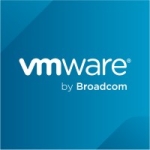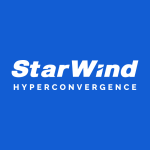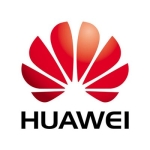We use it for implementing VDI solutions.
Hyperscale is the most valuable feature I found on this solution. It's the ability to utilize the resources for the VMware cluster setup on which Citrix VDA runs.
The only issue we've faced is with their Call Home Support Center. Any alert that has to be triggered, we're just currently working on to fix. Otherwise, it has been a pretty good system.
One problem we had was when we ordered the first node of cluster setup, and then we wanted to add two more nodes, we could not get the same configuration. We had to use a different configuration for the cluster setup.
Scalability becomes a problem when two or three years have passed because you don't get the same model. You get a better model and to make that model work, you need to have a different cluster setup. You tend to lose on the continuity or expansion. I would recommend having a capability where even your older versions of hardware can be seamlessly utilized and additional expansion becomes so much easier.
I've been using this solution since 2020.
The stability of VxRail is good. We are content with its stability.
This solution is scalable. We purchased two additional units the following year.
Technical support for this solution was very good, professional, and they had the skills to get it implemented.
We used Nutanix. VxRail is more economical than Nutanix. It's more cost-effective so we prefer it over Nutanix.
We used so far three different solutions. The first was not a recommended solution. It was pushed down our throats to use that particular hardware. As I was involved in that setup, I knew the first time that implementation was on the wrong hardware, against the recommendation of the partner and the implementer. We definitely did not succeed. The second was a failure again, because of not following the recommendation of the implementer or the partner. The third one, lesson learned and we had no objections to that. We got a better recommendation from someone we trusted, so we were successful with our choice.
The initial setup was straightforward. The engineers asked for what is required and they came with the same initial set.
We used a partner for the deployment. My experience with them was good. They fully supported us during the pandemic situation to get this up and running.
We're quite content with this solution for the purposes it was purchased.
Deployment was completed within two weeks.
Almost all of the people in the company used this solution since the pandemic. Now it's mostly used by the task workers.
For deployment and maintenance of this solution, we require four staff where some are admins who handle multiple storages in other systems as well. They don't do this full-time. They only spend one-third or less of their time managing deployment and maintenance.
I have no plans to increase VxRail usage in the future. The only problem with it is the usage of the cloud is being promoted to its peak, so the next expansion would be on the cloud.
The cloud has always been talked about and people have been asked to venture into it. On the cloud, you don't have to wait and implement or pay upfront for the whole hardware. For some of the cloud versions, you can pay as much as you use. You can start with 50 users and then grow. If it has to be on-prem though, I'll have to at least factor a box that can cater to 200 or 300 users. You need to pre-plan and the hardware delivery might take some time, so making it market-ready is a little time-consuming.
I'm rating this solution a ten out of ten. This is because of my previous experience with other solutions where I had three failed implementations on different hardware. They failed because of one particular reason: They're not low-maintenance. This solution, on the other hand, does not need heavy system maintenance. People prefer to use the system rather than the desktop, which makes it convenient for them to work from anywhere. There are a lot of benefits. You have your data saved on a data center. The availability is there which makes it flexible for users.
After the pandemic, when people returned to the office, we utilized this solution as an agile workspace, so people can sit and work on any desk. When they come to the office, they don't have to go to a particular desk. They can choose where they want to work, so this solution provides a lot of benefits for us.















